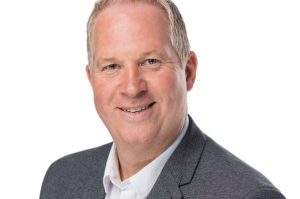Positive brand recognition – is it just more spin?

THERE can be few boards in the country that haven’t yet put corporate responsibility on the agenda.
Over the past few years pressure to be environmentally responsible, community conscious, energy efficient and ethical in the marketplace and workplace has gone from persistent to intense. Even hardened cynics are encouraging the adoption of corporate responsibility (CR) programmes not wanting to be left behind in the corporate goodie stakes.
And it’s hardly surprising. Warm fuzzy feelings aside, the financial benefits of CR are well proven and whether in terms of sales, staff retention, market position, or attracting funding the effort is proving to be worth it. CR is also critical in reducing reputational risk through positive PR and brand recognition although it offers no protection for poor governance as BP – once one of the world’s most respected brands and CR torch bearer – can testify. Indeed, many argue that governance and conformance is part and parcel of CR.
But while the swing to sustainability is in no doubt a good thing, recent ethical clambering has somewhat diluted the strength of previously good and honest terms such as sustainable, eco-friendly, green and ethical. Although today’s customer is better informed and therefore less likely to fall for so called green-washing, identifying the genuine from the disingenuous is becoming ever harder.
Of all the sectors currently battling for the ethical high-ground, retail is being fought for the hardest. Today, it’s virtually impossible to pick up a tin, packet, box or bottle without reading about the company’s ethics on the packaging. Be it fairly traded, supportive of a good cause, recycleable or manufactured responsibly, few leading consumables are without responsible endorsement. Some would argue that this trend is a good thing – that more causes and issues are being brought to the attention of the general public, behaviours are being influenced, and that consumerism is at last giving something back other than profits. However, although attracting consumers to your brand through ethical causes may seem like easy pickings, customer sophistication shouldn’t be underestimated. In other words, beware the hype.
Corporate responsibility claims therefore should be able to stand up to scrutiny. Non-financial audits are now big business as companies seek or are expected to give stakeholders assurances that their claims are true.
Indeed, without transparency and accountability positive brand recognition is unsustainable – something which Paul Martin, chief executive of Harrogate-based bottled water manufacturer is keen to point out. The company, which produces the popular Harrogate Spa water, has worked hard to create a market differential based on responsible business practice from managing its environmental impact to supporting good causes as part of its wider responsibility to the “global” community.
For six years, Waterbrands supported the British Heart Foundation (BHF) through sales of Harrogate Spa, but Martin wanted to do more than simply donate monies to charity. While the money donated to the BHF was important, he wanted to take the gesture to beyond charitable giving. It was then that he started investigating the work of water aid charities in Africa and the potential of supporting projects more related to the company’s manufacturing base.
“I guess people could see it as ironic that a bottled water company is helping to provide water in Africa but I wanted to do something that was directly related to our industry,” he explains.

Thorpe’s engineering achievements, his understanding of the importance of cultural factors and the wider social impacts of giving communities access to clean water made an impression on Martin and after the meeting Waterbrand’s relationship with Pump Aid formally began.
But Martin quickly realised that simply endorsing the charity was not enough. So he set about the launch of a separate bottled water brand – Thirsty Planet. The new brand’s sole purpose is to raise money for the provision of clean water in Africa, primarily in Malawi, and since its launch a year ago 1.3 million people now have access to clean drinking water – a figure that grows daily.
“Thirsty Planet gets the message across without being stereotypical. We didn’t want it to be all tears and flies,” says Martin.
“It was important to create a brand that had credibility. When you buy the drink you know the exact amount that’s going to the charity. We know at any one time how many people have access to clean water thanks to the installation of a Pump Aid elephant pump. That’s because the money is ring-fenced and not dependent on profits.”
“When you buy a multipack you’re giving someone clean water for their whole life, while a 500ml bottle generates a five-year supply for one person.”
Accountability isn’t the only issue that bothers Martin. Sustainable community involvement is equally key to Waterbrand’s involvement with Pump Aid. Pump Aid works hard to be sensitive to cultural influences and community involvement is a core belief with all pumps built and maintained by local villagers. The pump, which is based on an ancient Chinese design, is also simple and unintrusive unlike other designs, which Martin says are too ornate, complex, and costly to maintain.
“Everything needed to repair and maintain the pumps can be manufactured locally, therefore creating employment as well as enabling women and young girls to earn a living having escaped the lengthy task of fetching water,” he adds.
“But the simple design has another function. For example, sanitation is another problem that needs to be tackled in Africa, but building toilet blocks doesn’t work as some charities have found out. Apart from the buildings looking better than the houses the villagers live in, it’s traditional in many tribes for the men to communally go to the toilet where they discuss issues. It’s meant that many toilet blocks have been turned into storehouses or stock rooms – their original function ignored.”

Martin is realistic about this but he never came up with concept as a way to make a fast buck. It was a way of creating a real differential in a crowded market and doing something good. And Waterbrand’s intentions go beyond its African commitment. It is in discussions with The Carbon Trust to look at ways of reducing its carbon footprint (the firm already runs a 50 mile local sourcing policy and ensures no vehicle runs empty reducing activity by 35% in the last two years).
All of its bottles are recycleable and redesign has saved the amount of plastic used by around 180 tonnes a year. Any cardboard used contains a high level of recycled material and Waterbrands is currently trialling a shrink film that is also manufactured from recycled plastic. All production waste is collected, bailed and recycled and there is an on-site guillotine that allows cardboard that comes in with bottle deliveries to be reused.
Although ambitious, Martin says that the company is keen to export the brand rather than the bottled product itself to overseas markets, which if done would be groundbreaking.
But creating a market differential and receiving kudos achieved from doing something good aren’t the only drivers behind Thirsty Planet. Martin may be a CR pioneer, but his crusade is under the banner of brand protection.
“The bottled water sector is constantly under attack,” he admits.
“We’re accused of being wasteful and un-environmentally friendly. There’s always something. The latest scandal was over harmful chemicals leaking into the water when the bottles got warm. That has since been disproved I have to say. Creating a strong brand that is positively regarded helps maintain our competitiveness.”
Indeed, the bottled water industry is once again under attack this time from two fronts; a campaign for drinking tap water with London Mayor Boris Johnson promising that the city’s springs will be running once again, and renewed health warnings over certain types of plastic bottles. Earlier this year cities across Canada moved to ban the sale of bottled water.
But as firms such as BP have shown, even companies in the dirtiest sectors can crown themselves with a halo of goodness. Retaining the honour is the real challenge.







